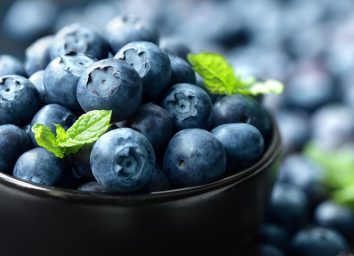Popular Foods That May Cause Lasting Damage to Your Kidneys, Says Science

Your kidneys play an essential role when it comes to keeping your body healthy, filtering toxins out of your body, controlling your blood pressure, and promoting healthy red blood cells. In many cases, these vital organs work so efficiently that you don't even realize they're there until something goes wrong.
However, for the estimated 14% of U.S. residents who have chronic kidney disease (CKD), kidney health is an ever-present concern, with more than 47,000 Americans dying from the condition each year.
It's not just genetics that factor into your risk of developing kidney health issues—what you eat can also play a major role in how healthy your kidneys are. To protect your renal health, read on to discover which popular foods could be causing lasting damage to your kidneys, according to science. Please keep in mind that for a few of the foods on our list, only those with kidney issues need to be concerned with their intake of these foods, as many can be a part of a healthy, balanced diet; the average American with no preexisting health conditions can likely consume these foods without issue. If you notice that you're sensitive to any of the foods below or kidney issues run in your family, it's always best to consult a medical professional before making any dietary changes. And if you're ready to get healthier in a hurry, start with The 7 Healthiest Foods to Eat Right Now.
Red meat
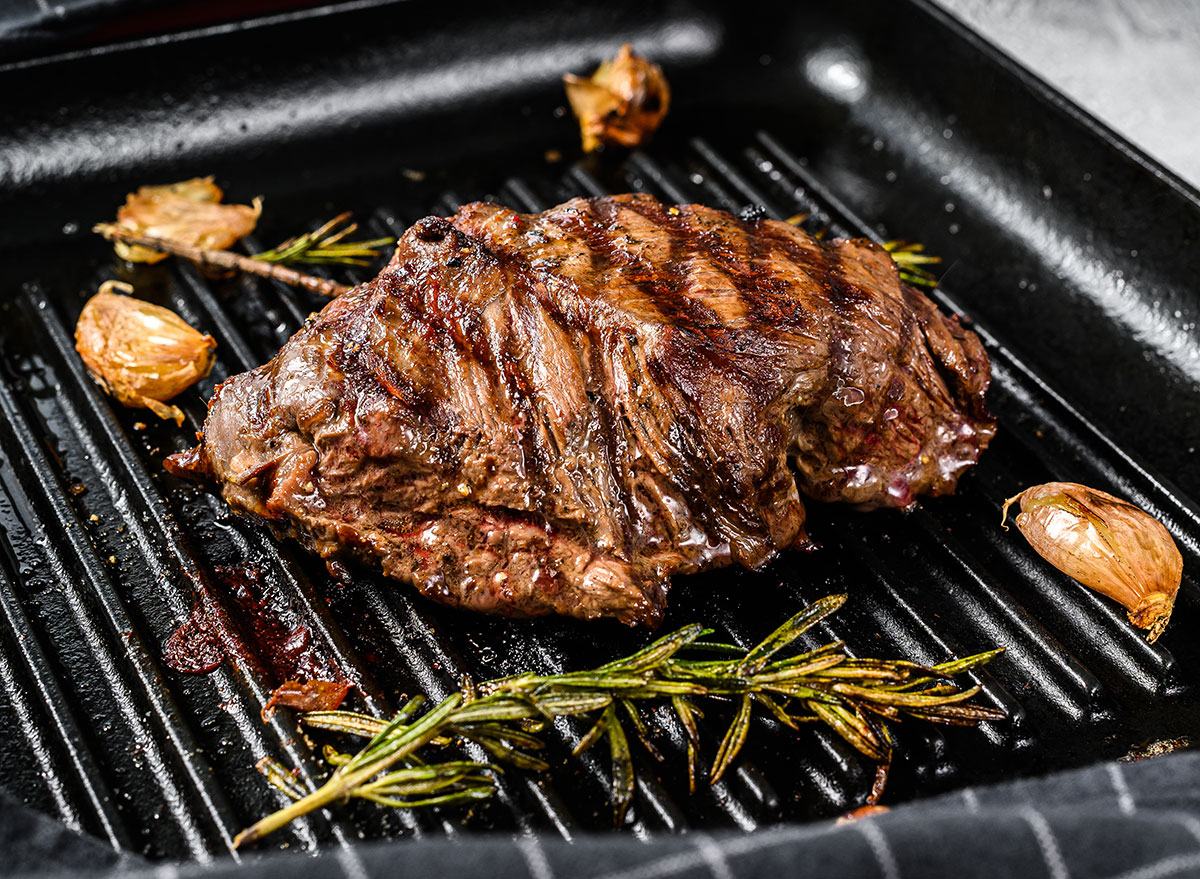
If you want to help make your kidneys healthier, you may not want to be eating more than the recommended 3 servings of red meat per week. (Considering that the average American consumes 5 servings of red and processed meat per week, this is likely something you need to consider.)
According to a 2017 study published in the Journal of the American Society of Nephrology, high red meat consumption was significantly linked to the development of end-stage renal disease (ESRD), but replacing just one serving of red meat with another protein source could reduce a person's risk of ESRD by up to 62.4%. If you need more incentive to reduce your steak intake, check out this One Major Side Effect of Eating Red Meat, Study Says.
Spinach
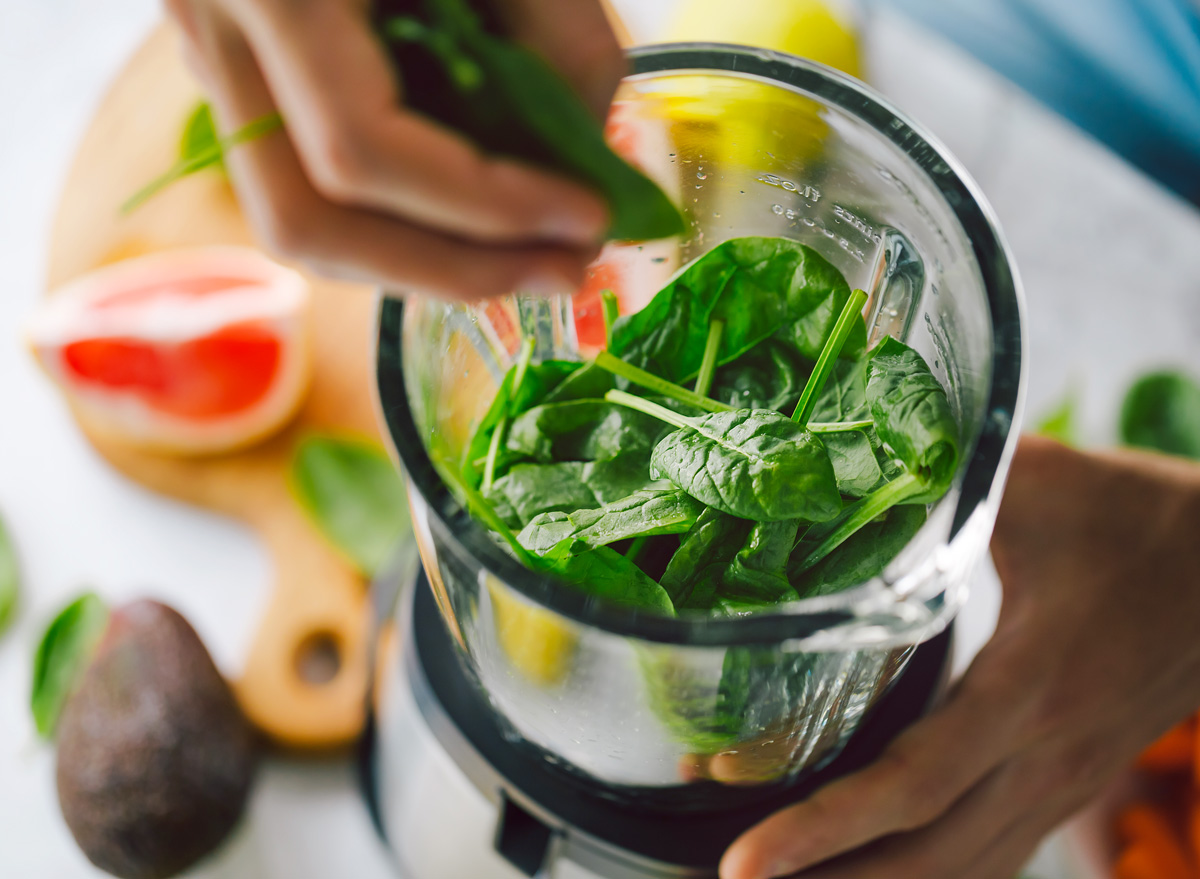
If you have no pre-existing conditions—especially kidney health concerns—you have little reason to be concerned with your spinach intake. Spinach is a nutrient-rich addition to your favorite salads or smoothies and plays a health-promoting role in most diets. However, this leafy green may pose a problem for those with kidney health concerns. Spinach can contain up to 1,260 milligrams of oxalate per half-cup serving, which may spell trouble for those with existing kidney health issues. In fact, a study published in the Journal of the American Society of Nephrology found that significant dietary oxalate consumption was linked to a greater than 20 percent increase in kidney stone risk among both men and older women, and that spinach typically made up the bulk of the oxalates in study subjects' diets.
Processed meat
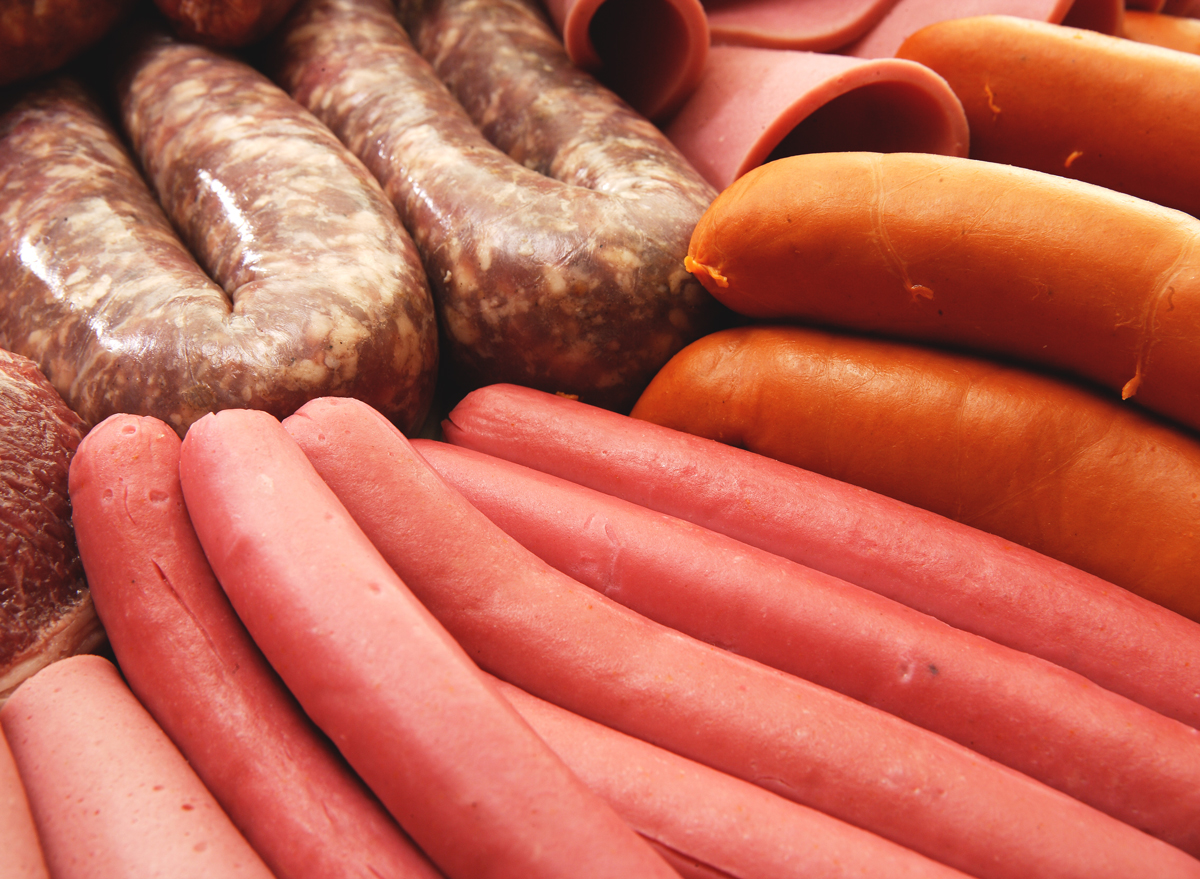
If you're eager to keep your kidneys healthy, you might want to cut those processed pork products from your diet—or at least limit your intake significantly. According to a 2017 meta-analysis of 23 studies published in the journal Oncotarget, consumption of processed pork products, including salami, ham, bacon, and sausage, was significantly linked to the development of renal cell carcinoma, a form of kidney cancer.
For more reasons to cut processed meat from your diet, check out the One Major Side Effect of Eating Processed Meat, New Study Says.
Potatoes
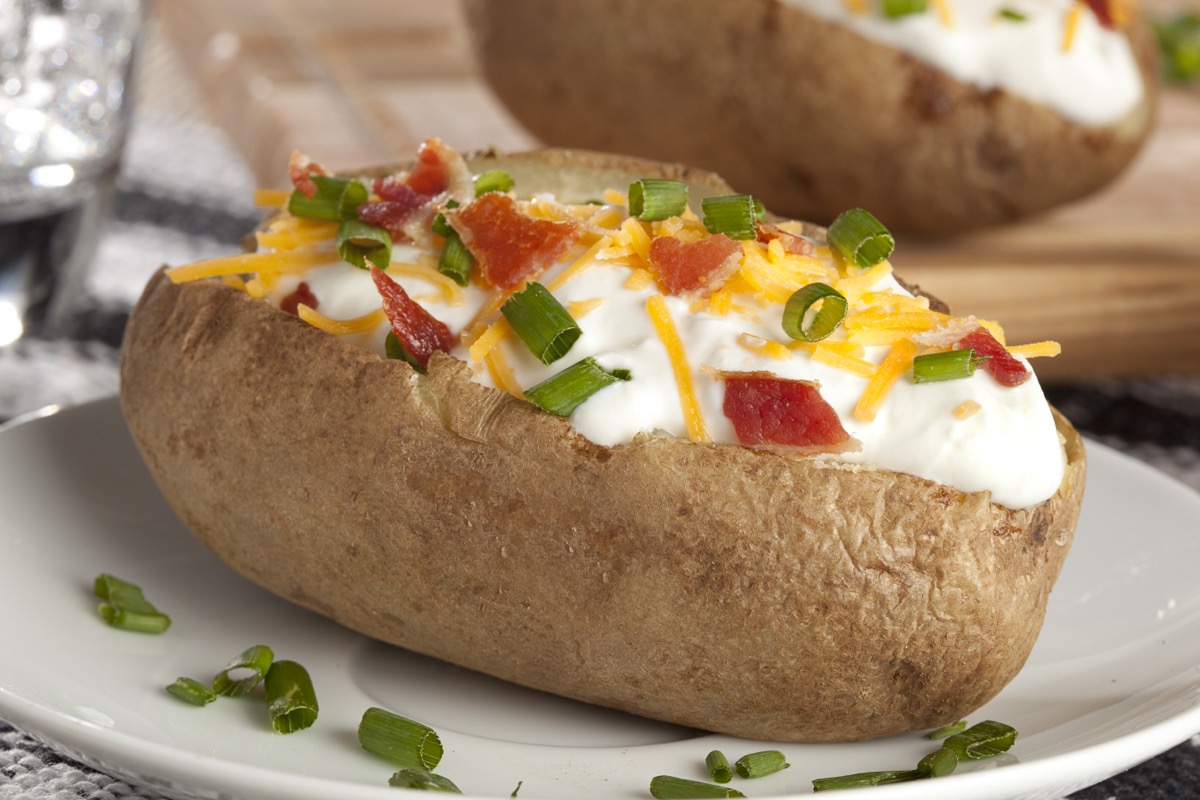
Potatoes are a rich source of potassium, packing up to 1,640 milligrams of the nutrient—or nearly half the RDA for adult men—per large spud. Unfortunately, if you have kidney issues, this may spell trouble for this organ. A 2015 study published in the American Journal of Nephrology found that, among 36,359 subjects studied, individuals with late-stage chronic kidney disease who had higher serum potassium levels were more likely to die than those with lower potassium levels. Again, it's important to note that this study only included patients with late-stage chronic kidney disease, and healthy individuals need not be concerned with their potato intake.
Chips
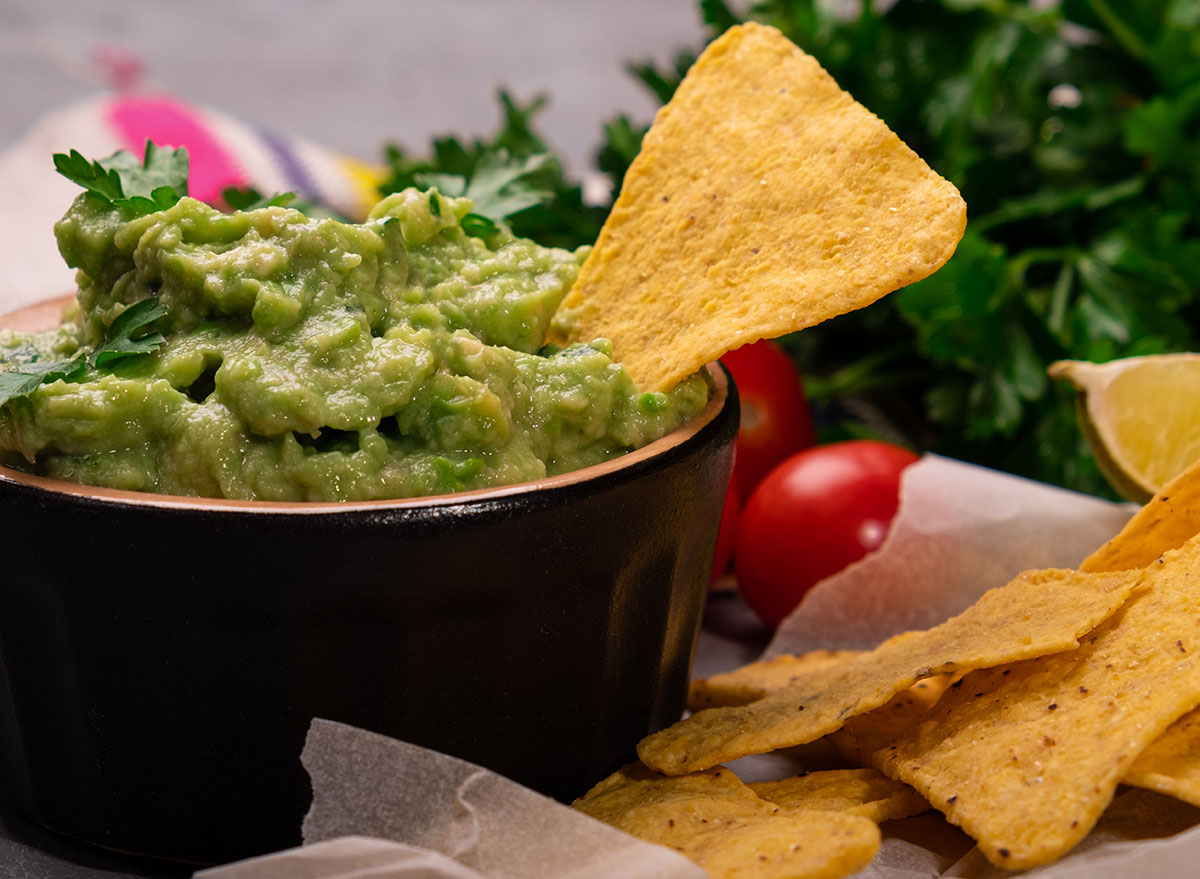
Salty foods like chips aren't just bad for your waistline—they may be harming your kidneys, as well. A 2018 paper published in the journal Kidney and Blood Pressure Research found that, among a group of 12,126 study subjects, those with the greatest salt intake were 29% more likely to develop impaired kidney function than those with more moderate salt intakes. This study was done in a general population sample, so the resulting impared kidney function from salty food intake is worth keeping in mind for everyone.
For more food and health news delivered to your inbox, sign up for our newsletter!
Soda

If you drink sugar-sweetened soda on a regular basis, you could be sipping your way to kidney health problems before you know it. A 2016 study published in the journal Nephrology found that, among 2,382 adult patients observed as part of the Tehran Lipid and Glucose study, those who consumed more than four sugar-sweetened drinks, including soda, each week were significantly more likely to develop chronic kidney disease.
If you want to know how your beverage of choice stacks up, check out the 108 Most Popular Sodas Ranked by How Toxic They Are.
